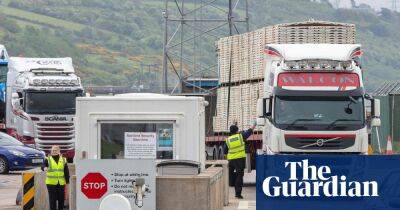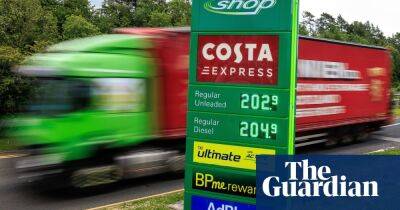‘Cash, coal, cars and trees’: what progress has been made since Cop26?
In the run-up to Cop26, the UK government used the mantra “Cash, coal, cars and trees to keep the world to 1.5C” to highlight four key areas on which the conference would focus.
At Cop26, rich countries were supposed to fulfil a longstanding promise, made in 2009, to provide $100bn a year in climate finance to the developing world from 2020.
The actual amounts provided are still falling short, but developed countries did produce evidence that they would meet the promise this year or next, with the five-year average from 2020 to 2025 at around $100bn. Developing countries have also been promised a new financial settlement that would see greater flows from 2025, with details yet to be decided.
In the months since, however, there has been little advance on the Cop26 promises of cash. Rachel Kyte and Lord Stern, both former top World Bank officials, told the Guardian of several concerns over the World Bank’s programmes on climate. Stern said the bank’s resources would be stretched by the additional strains of high energy and food prices around the world, and the effects of the war in Ukraine.
Kyte cast doubt on whether the World Bank was truly committed to the climate fight: “[The World Bank’s] weak showing at Glasgow and continued questions about their appetite for urgent action has meant that coalitions form without them at the helm. Broader questions of whether the Bretton Woods institutions are fit for purpose for the climate crisis grow.”
The private sector has also come under closer scrutiny. The GFANZ network – the Glasgow Financial Alliance for Net Zero – was announced with fanfare by Mark Carney, former governor of the Bank of England and UN climate envoy. It is unclear, however, how much of that is flowing to the
Read more on theguardian.com





![Is BAYC losing significance with ApeCoin [APE] losing over 34% in a week - ambcrypto.com - city Santiment - Beyond](https://finance-news.co/storage/thumbs_400/img/2022/6/12/29353_r38l.jpg)




![Shiba Inu [SHIB] sees a 40% uptick, but not in price as… - ambcrypto.com](https://finance-news.co/storage/thumbs_400/img/2022/6/12/29347_lp8.jpg)







